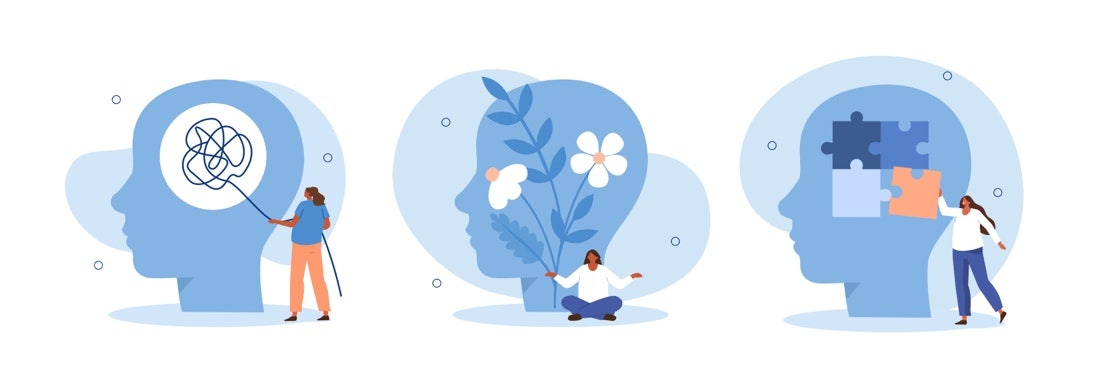Comprehensive Inpatient Mental Health Providers for Effective Treatment
Inpatient mental health and wellness services represent an important element of the health care system, offering a intensive and structured setting for people experiencing extreme mental distress. Checking out the subtleties of this continuum reveals significant effects for both specific recuperation and more comprehensive mental wellness end results.
Recognizing Inpatient Mental Health And Wellness Solutions
Inpatient mental wellness solutions offer important support for individuals experiencing extreme emotional distress that can not be handled efficiently in an outpatient setup. These solutions are made to use an intensive level of treatment in a structured environment, usually within a medical facility or specialized center. People confessed to inpatient programs usually display intense signs, such as self-destructive ideation, serious depression, or psychosis, requiring round-the-clock tracking and intervention.
The admission procedure typically entails a detailed assessment by psychological health and wellness experts, that examine the person's frame of mind, background, and instant demands. Once confessed, individuals take part in a range of therapeutic techniques customized to their particular needs, including medicine administration, private therapy, and group sessions. This all natural approach aims to support the client's problem, promote security, and foster coping abilities.
Inpatient mental health and wellness services not only address instant wellness issues but likewise act as a bridge to ongoing care. By supplying a controlled setting, these solutions help with the growth of treatment plans that can be continued in outpatient setups, hence guaranteeing a continuum of treatment and boosting lasting outcomes for individuals with complicated mental health demands.
Secret Elements of Effective Treatment
Efficient therapy in inpatient mental health and wellness services makes up a number of essential components that cultivate healing and stabilization. A detailed analysis is necessary to recognize the person's specific needs and challenges. This analysis educates the growth of a customized treatment plan, which acts as a roadmap for intervention.
One more vital element is the multidisciplinary team approach. Collaboration amongst psychoanalysts, psychologists, registered nurses, and social employees makes certain that numerous point of views add to the client's care, boosting the performance of therapy. Evidence-based therapeutic modalities, such as cognitive-behavioral treatment (CBT) and dialectical habits therapy (DBT), are additionally indispensable, giving organized methods that deal with maladaptive idea patterns and behavioral issues.

Finally, a focus on aftercare preparation is vital to make sure a seamless change to outpatient solutions, lessening the danger of relapse and advertising long-term health. These cumulative components develop an efficient treatment structure within inpatient mental health and wellness services.
Advantages of Comprehensive Care

Comprehensive care in inpatient psychological health services provides countless benefits that substantially boost client results. Among the primary advantages is the alternative strategy to therapy, dealing with not only the psychological signs and symptoms yet additionally the physical, social, and psychological needs of clients. This complete analysis allows for customized treatments that advertise general health.
Another benefit is the combination of multidisciplinary teams, which promotes partnership amongst medical care professionals. This collaborative environment guarantees that individuals get coordinated care, decreasing the danger of fragmented treatment and improving communication among caregivers. Moreover, detailed treatment promotes connection of services, enabling smooth shifts from inpatient to outpatient settings, which is essential for long-term healing.

Last but not least, the structured atmosphere of detailed inpatient care supplies a risk-free area for individuals to participate in therapeutic tasks, aiding them develop coping strategies and strength. Collectively, these advantages add to more effective therapy and boosted lifestyle for people experiencing mental health and wellness crises.
Evidence-Based Therapeutic Approaches
In the world of psychological wellness therapy, evidence-based restorative methods play a critical duty in making certain that individuals get effective and scientifically sustained interventions. These techniques incorporate the most look at here now effective offered research study with clinical proficiency and patient worths, promoting a tailored therapy experience that attends to individual demands.
Cognitive Behavior Modification (CBT) is just one of one of the most commonly identified evidence-based techniques, concentrating on identifying and transforming negative thought patterns and actions. This structured technique has demonstrated effectiveness in dealing with conditions such as ptsd, depression, and stress and anxiety. Dialectical Actions Treatment (DBT) is particularly effective for individuals with borderline character condition, highlighting the advancement of psychological policy and social efficiency abilities.
In addition, drug monitoring is often an essential element of evidence-based treatment, as psychotropic medicines can minimize signs and improve overall functioning. Collaborative treatment versions, which entail multidisciplinary groups, straight from the source additionally improve the effectiveness of inpatient services by making sure detailed evaluations and continual surveillance.
Eventually, the combination of evidence-based therapeutic approaches not just advertises positive medical outcomes yet additionally equips individuals, cultivating a feeling of company and resilience in their psychological health and wellness journeys.
Transitioning to Outpatient Support
The change from inpatient mental health solutions to outpatient support marks a critical stage in a client's recovery trip. This period requires mindful planning and coordination to make sure continuity of care and to minimize the dangers of relapse or dilemma. Effective discharge preparation ought to commence early in the inpatient remain, including a multidisciplinary team that consists of psychiatrists, psycho therapists, nurses, and social workers.
Trick elements of an effective transition consist of the development of a thorough aftercare plan customized to the individual's certain requirements. This strategy ought to lay out follow-up visits, drug management, and healing interventions, in addition to recognize neighborhood sources and support system that can help with continuous recovery.
Additionally, person and household education and learning is vital during this stage. Understanding the indications of possible problems and the relevance of adhering to treatment can encourage patients and their support systems.
Routine follow-up and review of the outpatient plan are vital to resolve evolving difficulties. By promoting a collaborative relationship between inpatient and outpatient suppliers, the chance of sustained recovery increases, eventually improving the person's lifestyle and reducing the danger of readmission.

Final Thought
In recap, extensive inpatient psychological health solutions offer a vital framework for resolving severe psychological distress via a multidisciplinary method. By incorporating evidence-based treatments, fostering a structured setting, and promoting household participation, these solutions enhance treatment performance. The emphasis on stability and the advancement of dealing abilities not only aids in instant recuperation but also assists in a smoother change to outpatient treatment. Ultimately, such extensive care is vital for long-term mental wellness and health.
The admission process typically involves an extensive evaluation by mental health and wellness experts, who assess the individual's mental state, history, and prompt demands.Reliable therapy in inpatient mental health services consists of numerous vital elements that promote healing and stabilization.Comprehensive treatment in inpatient psychological health and wellness services offers countless benefits that considerably improve client outcomes.The change from inpatient psychological health and wellness services to outpatient assistance marks a vital phase in a person's healing journey.In recap, detailed inpatient psychological health and wellness solutions offer a vital framework for resolving serious psychological distress via a multidisciplinary technique.